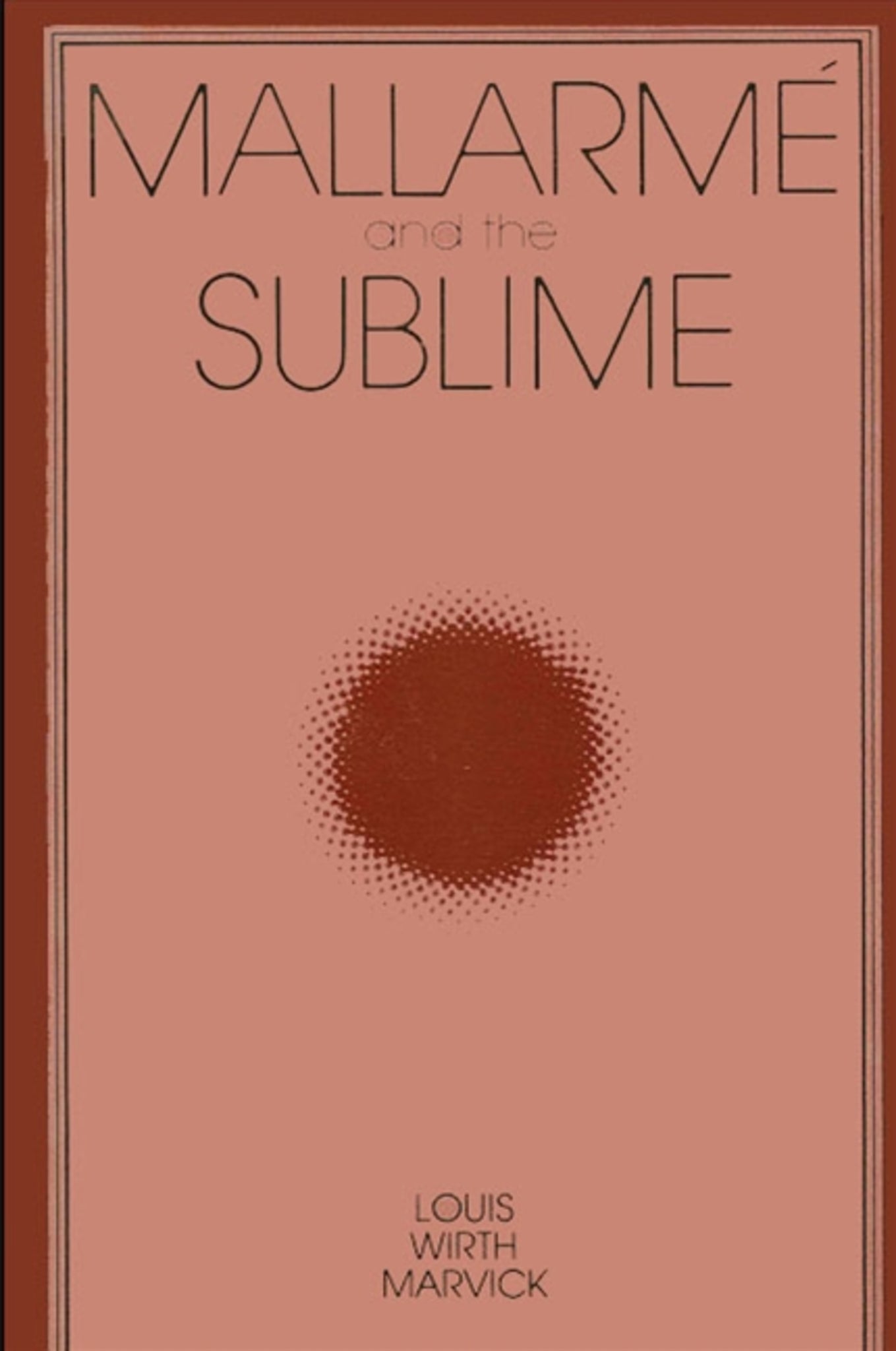We're sorry. An error has occurred
Please cancel or retry.
Mallarme and the Sublime

Some error occured while loading the Quick View. Please close the Quick View and try reloading the page.
Couldn't load pickup availability
- Format:
-
15 August 1986

In this groundbreaking study, Louis W. Marvick develops a literary criterion for the quality known as "the sublime," considered as the expression of an attitude towards the ideal—an attitude composed of irony and enthusiasm in varying proportions. The author examines the various theories of the sublime and traces the development of the concept from a rhetorical device to an experience of spiritual insight derived from the genius of the artist. The book covers all of the major discussions of the concept, from Longinus, Johnson, Dennis, Burke, and Kant, up to Mallarme. Kant's structural model of the sublime moment is translated into terms suitable for literary analysis. This leads to a meticulous examination of Mallarme's use of the word sublime in his prose writings and the ways in which Mallarme's understanding of the term resembles and diverges from that of his predecessors. This comparative procedure affords an insight into the nature both of Mallarme's literary achievement and of the sublime experience in general.


Preface
Part One
1. Objections to the topic. Limitations of an historical approach. The proper application of the word "sublime" traditionaly disputed. An indefinable term?
2. Longinus a Romantic? Importance of social considerations in his work.
3. The measure of Longinus's idealism. His practical approach to the sublime - a moderate experience. His conception of language "unliterary" by Mallarme's definition. His conception of the ideal not modern.
4. The sublime of Dr. Johnson. Words cannot do justice to the ideal: the necessity of silence.
5. Contrast of Johnson to the practitioners of the "religious" sublime. The ideal takes a material form, of which they may speak. Uneasiness of their position.
6. Ironic and enthusiastic attitudes to the ideal: to speak of it or not? Irony of Mallarne's attitude. His reluctance to name the ideal compared with Johnson's. Faith, a form of enthusiasm, and its literary product, the Word. Mallarme's hopes of doing justice to the ideal in words.
7. Tendency of enthusiasts to name things without reflecting that the words are not the things themselves. Enthusiasm alone does not confer literary distinction (John Dennis). No one rhetorical figure specially suited for the expression of enthusiasm. Enthusiasm and hyperbole. Longinus's and the Romantics' attitudes to hyperbole contrasted.
8. Enthusiasm vulnerable to irony. Enthusiasm may be supplied be reader as well as writer. Important facts a defense of enthusiasm against irony. Enthusiasm disguises hyperbole's "departure from truth". Predominance of irony in modern attitude. Deceptive power of hyperbole not felt by modern critics. Hyperbole an excpetion to rule of literariness.
9. Postponement of discussion of hyperbole in Mallarme. Synopsis of Kant's "Analytic of the Sublime". Objections to applying his theory to literature refuted. Literary version of his theory.
10. Phases of Kant's sublime moment related to positions on scale of height and depth. Inferior position assigned by enthusiasm (Burke). Bathos the literary result of unqualified enthusiasm. Argument of Kant's "Analytic" disputed by enthusiasts. Subliminal influence of irony on enthusiasts. Methods of completing Kant's sublime moment by introducing irony without subject's conscious knowledge. A new criterion of the sublime.
11. Mallarme eligible for consideration as a practitioner of the sublime by both old and new standards. His obscurity the product of irony; constrasted to obscurity of enthusiasts. His experiment in sublimination. A paradox: the theoretical impossibility of his practice of the sublime. Literary result of the paradox: a singular treatment of hyperbole.
Part Two
12. The Context of the Word "Sublime" in Mallarme's Prose.
I. Oeuvres completes, pp. 716-719
II. Oeuvres completes, pp. 261-262
III.Oeuvres completes, pp. 299-301
IV. Oeuvres completes, pp. 330-333
V. Oeuvres completes, pp. 375-376
VI. Oeuvres completes, pp. 366-367
VII. Oeuvres completes, pp. 481 and 549
13. A Foreword to Further Inquiry: The Poems
Conclusion
Appendix. Translations of French Passages
Selected Bibliography
Notes
Index of Proper Names



